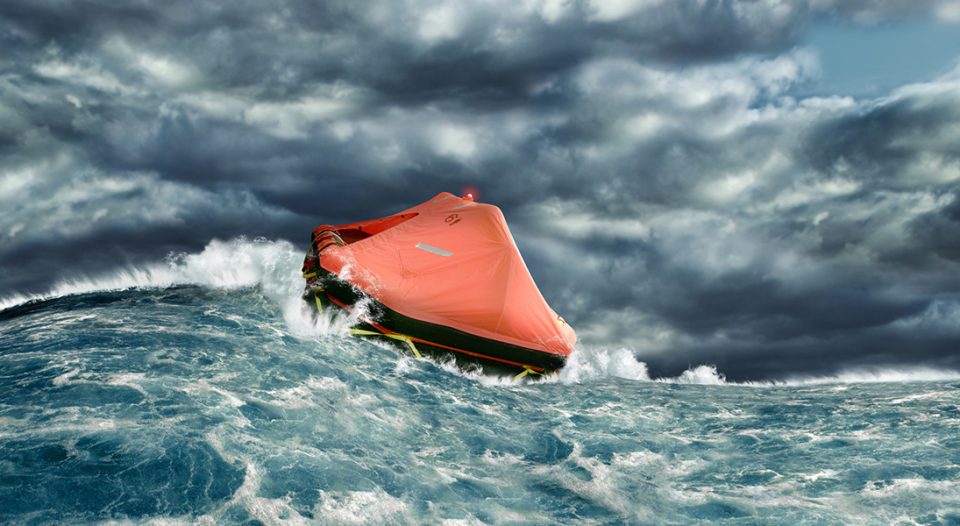“Things fall apart; the center cannot hold;
Mere anarchy is loosed upon the world .…
The best lack all conviction, while the worst
Are full of passionate intensity.”
—W.B. Yeats, from “The Second Coming”
“[Irish writer] Fintan O’Toole has proposed the ‘Yeats Test’: ‘The more quotable Yeats seems to commentators and politicians, the worse things are.’”
—Dorian Lynskey, The Guardian
In 1919 the Irish poet William Butler Yeats was observing the end of a long and bloody world war. He was also a helpless witness to his pregnant wife’s serious illness (she caught influenza during an epidemic). That year seemed to be an inflection point for our civilization: how to struggle back from this brink? And, for Yeats personally, how to hold on to hope in such a frightening situation?
Yeats turned to poetry to make sense of it all. The result, “The Second Coming,” is a powerful work—so powerful that its individual lines may have been quoted more than any other modern poem. Famous books have used quotes: Joan Didion’s Slouching Towards Bethlehem (“what rough beast, its hour come round at last, slouches towards Bethlehem to be born?”). The Roots released a record titled Things Fall Apart. Many current readers refer to this poem as a touchstone, a summary of where we are right now (and where we are is not good).
The book of Revelation, which closes the Bible, is similarly a cry of anguish. It was written in turbulent times in response to the ongoing and violent Roman occupation. It’s important to note the historical context because many readers assume it’s a literal prophecy about the end of the world. They scan the text for clues and cues while trying to connect the dots between what is vividly described there and what is happening here and now. That’s not the only way to read this book and not the best approach. These may not (yet) be the “end-times,” with Revelation as some kind of answer key.
There is little doubt that we are living in perilous times. But are they substantially worse than those experienced during the world wars or other periods of trouble in mankind’s story?
The pandemic? There have been many of those before, and no vaccines to combat them.
War? War has, sadly, been a constant throughout history. Only our weapons change.
Divisiveness and hate? They have always been with us. It’s just more obvious now in the internet age.
Like children hanging on to a life raft in a turbulent ocean, we rely on that craft’s dependability. It will hold; it must hold (us). Our faith can be that life raft, that grounding, that centering.
What is new and different? As the movie Oppenheimer reminds us, the atomic bomb forever altered the landscape of humanity. We live our lives now under the dark shadow of possible nuclear annihilation. Additionally, we are reaping what we have long sown in terms of destroying our planet, as climate change continues to accelerate at an alarming pace.
Yeats writes of the lack of conviction in “the best of us,” mankind’s inherent tendency toward complacency, inertia, a passive willingness to accept unacceptable things (especially when they occur gradually). He also warns of evil’s “passionate intensity,” which time and again threatens to sweep us all away. His words were true in 1919 and are most certainly true today.
So do we study Revelation and read “The Second Coming” with only horror and despair? Do we give up, convinced that the center can no longer hold?
Or is there another way?
We have always been a people in search of a centering, a grounding. Like children hanging on to a life raft in a turbulent ocean, we rely on that craft’s dependability. It will hold; it must hold (us). Our faith can be that life raft, that grounding, that centering. Faith that reassures us of God’s ongoing care for us. Faith that we can weather any storm because of that divine love. Faith that we can still pull back from the brink of total destruction (although we need to acknowledge that our window is closing). Faith that takes the form of significant and collective positive action. We can pray on our knees, but it is what we do after we rise that is most important.
The whole world is a tall order to “center,” and it can seem an impossible goal to achieve. But each of us can reorient our individual lives, to focus on being kind and compassionate and thoughtful people. People who protect one another, lift one another up. People who reject all those “passionately intense” voices of hatred. People who become good stewards of God’s creation. In this way, working together, we can survive these times and the trying ones to come. And we need to remember that we do not work for good alone.
The final image in “The Second Coming” is of a great beast slouching toward Bethlehem to be born. Is that beast the worst of us? Perhaps. But it’s moving toward the place where the baby Jesus awaits. Jesus, who can transform even the worst of us. So let us move forward, with real hope.
The center can hold. The center will hold, we pray. Because God, our center, still holds us.





